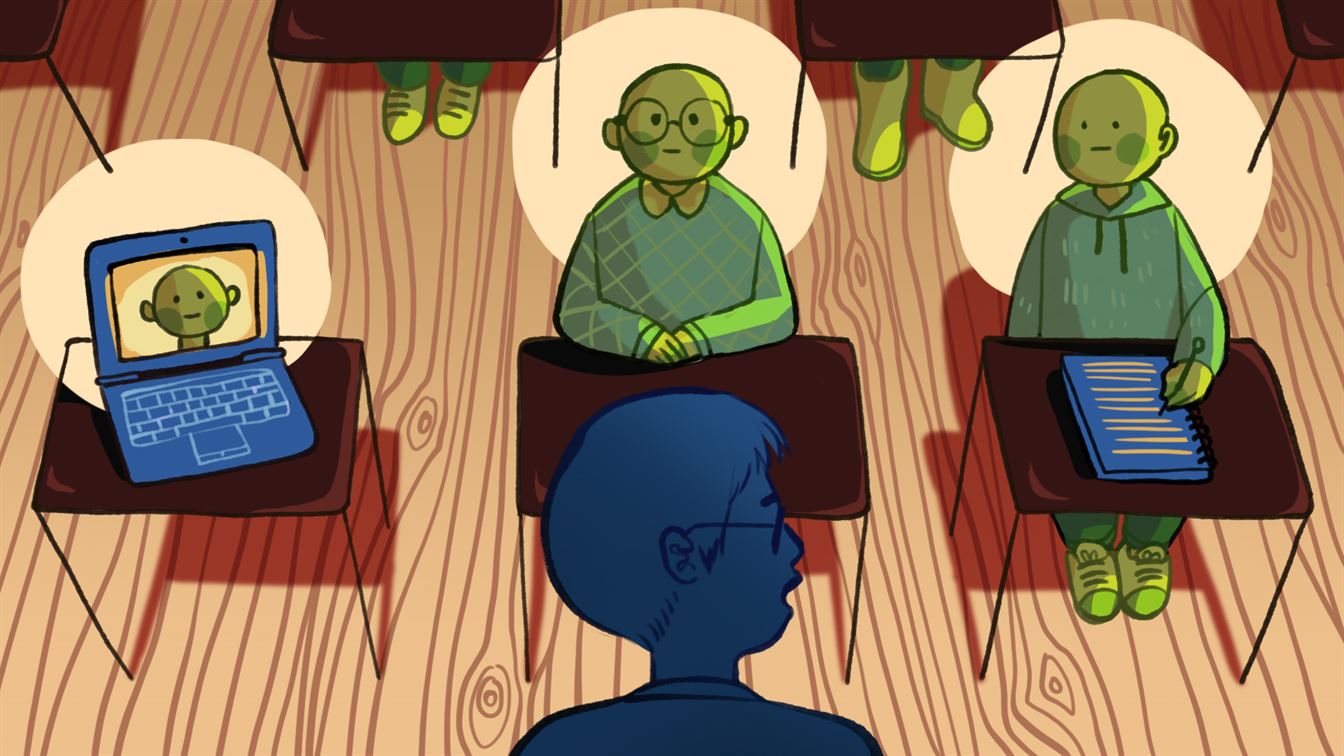It has been a month since the reopening of campus for in-person classes here at Montclair State University. It’s certainly something that has excited everyone from the very first day, as after spending almost a year and a half receiving classes at home, we are finally going to be able to get back in touch with our classmates, friends and professors face-to-face.
While it is exciting for people to go back to face-to-face classes, we are forgetting the coronavirus (COVID-19) pandemic is still present in our lives. According to Montclair State’s COVID-19 Dashboard, September alone reflected a total of 131 cases, 121 of which were from students. This means that of the 121 students, those who are taking in-person courses had to miss classes along with the important material being taught in each one.
The Montclarion created a 24-hour Instagram poll asking if students were denied a Zoom link to their in-person class despite having a medical reason. Out of the 46 responses, 35% said they were denied and 65% said they were not.
A few weeks ago, three people in one of my classes tested positive for COVID-19. Of course, we were all worried, and our professor even canceled class for the day. However, the following week we all went back to class as if nothing happened — all of us except the three infected students.
What could be the consequences for students in this position who are not supplied with a Zoom link to join class? Without a Zoom link, remote students are left with a skeletal outline of a synchronous course, while their peers have full access to in-depth discussions and other benefits. This isolation could result in absences, incomplete assignments and failed exams due to having missed the necessary material. They may even risk failing the course, which can significantly affect their grades and GPA.
These students are supposed to be finishing their degrees but that means their grades have to meet a certain requirement in order to graduate. How is a student supposed to pass a course if they can’t even attend?
Most importantly, many of these infected students, for fear of losing all the material required for a class or several classes, may feel the need to attend classes while being sick with COVID-19. This poses a serious risk for their classmates and others they come into contact with.
Such imprudence will cause an increase in the number of sick people both inside and outside the campus. Professors for in-person courses should be more flexible and offer other options for those who, because of COVID-19, are not able to attend their classes. It is patently unfair to exclude students who are unable to come to class since they are still paying for the course and should be able to attend however they can.
We have all already spent a great deal of time using Zoom as our main tool to take classes, get in touch with our professors and meet new people. Now, to help all the students who cannot join us in face-to-face classes due to COVID-19, we can still utilize Zoom to a lesser extent.
Andrew Mees, a spokesperson for the university, outlined the guidelines regarding what is to happen if a student falls ill with the virus, saying professors may provide Zoom links as they are simply not allowed to change the entire course modality from in-person to online.
“While professors may elect not to provide a Zoom link for a variety of reasons, it is expected that professors work to identify options for their students to acquire course content missed related to a COVID-19 diagnosis,” Mees said.
Zoom classes wouldn’t only benefit the infected students who have to stay home but also professors, who would have an easier time teaching both in-person and online. This option would also allow those students who are currently attending in-person to feel more comfortable about being at school.
This fight against COVID-19 is not over yet. Students and staff should not let their guard down and must continue to take necessary precautions to protect themselves. We all, as a community, have a responsibility to take care of ourselves as well as the people around us.
Everyone’s health matters, and simply giving someone an absence is not an adequate solution to this problem. Professors must help and empathize with those who are having a hard time and support them academically.
I have always believed the Montclair State community is united, and now we need to be united more than ever, whether we’re learning from home or coming to campus.



